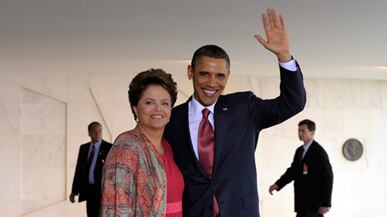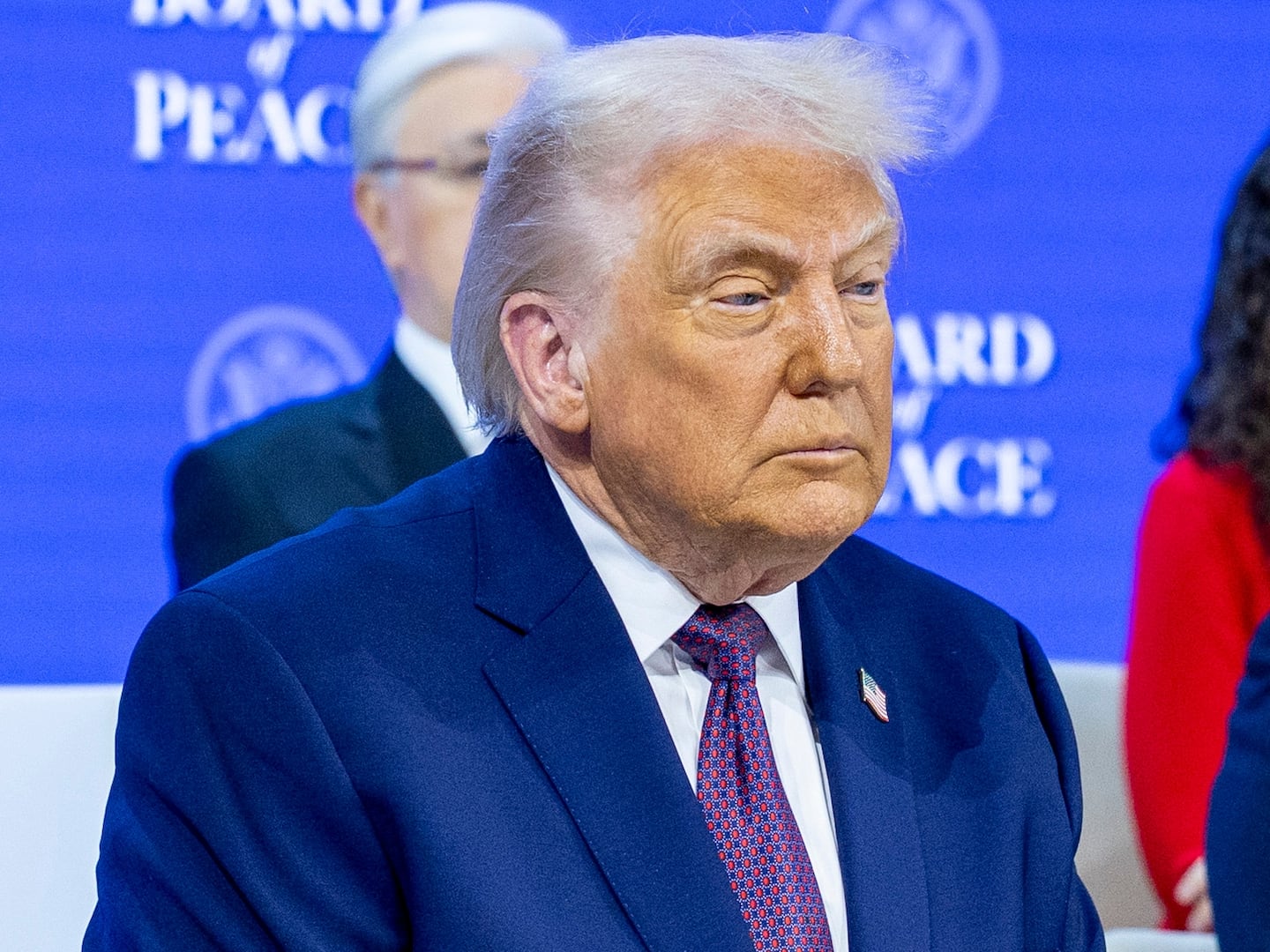The first family touched down in Brazil on Saturday, the first stop on President Obama's five-day tour of Latin America. Though the president has taken some flak for jetting off on a business trip amid global turmoil in Libya and Japan, Obama says he has good reason: The once poor continent has emerged relatively unscathed from a global recession and good offer some fiscal lessons. "The impressive growth that we've seen in Latin America in recent years is good for the people of the hemisphere, and it's good for us," Obama wrote in Friday's USA Today.
Gallery: Obamas Visit Brazil

The trip started with the signing of a flurry of trade and energies deals between the two nations. Still, when Brazilian President Dilma Rousseff (the nation's first female leader, and a former Marxist guerilla tortured by the old regime) appeared with Obama on Saturday, she pointed out the issues keeping her country and the U.S. apart, such as trade and the recent U.S. decision to print more dollars to boost capital flow—which has in turn made Brazil's currency overvalued. On a positive note, she said she shared Obama's support of the rising tide of democratic reform in the Middle East. The two leaders ended the day with a joint statement stressing the need to reform international institutions to reflect "current political and economic realities."
Meanwhile, Michelle Obama met with roughly fifty Brazilian youth ambassadors, many of whom are part of a U.S. State Department cultural exchange program. Her daughters Sasha and Malia and mother Marian Robinson were all present at the meeting, in which the First Lady emphasized that education and knowledge of other cultures are essential to making the world a better place.
Brazil and the U.S. have some obstacles to overcome before they can truly work together—namely, rebuilding a bond that was broken when the two countries took different approaches last year to confronting Iran's nuclear resources. Brazil proposed to get the Islamic Republic to give up much of their low-enriched uranium, thinking the U.S. and U.N. would support their bid with less reason to worry about Iran's potential to develop nuclear weapons. But the Obama administration rejected Brazil's pitch (which the country developed in partnership with Turkey) and deemed it naive intervening. Tensions were fueled by the fact that Brazil believed it had earned permanent seat on the U.N. Security Council—an issue which Obama continues to avoid.






